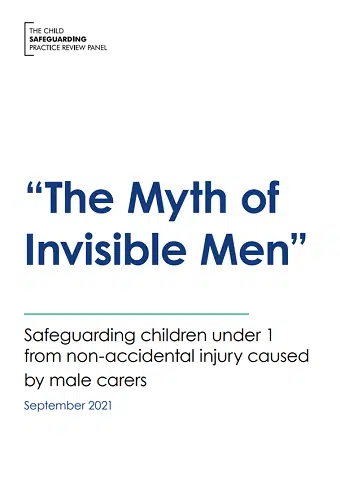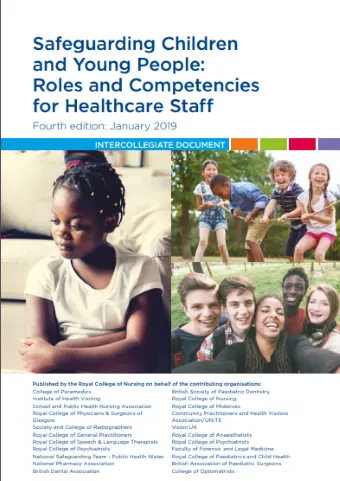Today, over 40 leading mental health, family and children’s charities and professional bodies are calling on national and local decision makers to give urgent attention to the wellbeing of babies, toddlers and their parents during the COVID-19 crisis.
While recognising the incredible work done over recent weeks by politicians, policy makers and dedicated front-line professionals, the charities are highlighting the need to protect unborn and very young children and their parents from the serious harm as a result of the response to the COVID-19 outbreak.
The statement comes in response to decisions from some local areas to redeploy significant numbers of staff from vital services such a health visiting, perinatal mental health and parent-infant teams that would normally support parents and safeguard babies. In some areas of England at least 50% of these highly skilled staff are being redeployed into other health services.
The organisations, which form part of the First 1001 Days Movement, describe the huge risks faced by some babies and toddlers as a result of increased pressure on already vulnerable parents, and the scaling back of services that would normally support them. They argue that babies, both born and unborn, and their parents should be given particular attention as this is a critical period with serious immediate and long-term consequences.
In a joint statement, the charities state that:
“It has already been widely recognised that for some people, home is not a safe haven. Across the UK, there are babies and children in lockdown in poor quality and overcrowded housing, with shortages of basic supplies, cared for by parents under immense pressure. Babies, born and unborn, are particularly vulnerable to physical and emotional harm because they are at a critical stage in their development, are fragile, totally dependent on adults for their care, and unable to speak out or seek help. Therefore, it is essential that Government is keeping their needs in mind.”
Research shows that, prior to the crisis, between 10-20% of women experienced mental health problems in the perinatal period[1] and 25,000 babies in England live in households where their parent or parents are already struggling with at least two significant issues – parental mental illness, domestic abuse and/or substance misuse.[2] These problems are escalating during the COVID-19 crisis as a result of the range of stresses facing families.
The charities write that families will be struggling behind closed doors, unknown to services.
“We can’t expect that families in trouble will ask for help: we know that parents often hide their struggles for fear of stigma and judgement. Babies can’t speak out.”
The statement calls on local services to work together to ensure that there is sufficient support for parents, and protection for children, not only for families known to be at risk before the crisis, but also those families who may be experiencing new or heightened problems as a result of the crisis.
While many services are working hard to deliver services in different ways – such as phone calls, video consultations and online forums – the charities argue that these may not be enough to reach families suffering from multiple disadvantage, and to understand what is really happening to babies in those households.
The organisations are calling on the UK Government to:
- Ensure that the physical and emotional needs of the youngest children are considered more explicitly and transparently by those making decisions about the response to COVID-19. Provide clarity on who in high-level decision making forums, such as COBRA, is representing the needs of babies and their parents.
- Provide clear guidance for health and social services on maintaining vital support for families. This must encourage an informed and coordinated local approach in each area that draws on partnerships between statutory agencies and charities (utilising any local volunteers effectively and appropriately) to ensure all families get the support they need. This guidance should minimise the re-deployment of staff from community services, in particular health visiting, parent-infant and perinatal mental health teams, recognising that these services provide essential support to families at highest risk and are needed more than ever. Decision makers must balance action to tackle COVID-19 with action to reduce its immediate and long-term negative impact on parents and the next generation.
- Ensure that the strategy to end the lockdown considers the needs of babies and their families, and the services that work with them. Government must consider how services can swiftly and safely return to offering high-quality face to face support to families and how additional support can be put in place to mitigate the impacts of social distancing, particularly on the most vulnerable families.
The charities are calling for national leadership to champion the needs of the youngest children and their families, not only during the outbreak but also beyond it.
Sally Hogg, Head of Policy and Campaigning at the Parent-Infant Foundation and Coordinator of the First 1001 Days Movement, said:
“For a long time, charities, professionals and parliamentarians have called for there to be a senior Minister in Government with clear responsibility for the wellbeing of children – beginning in pregnancy. Perhaps if such a person had been in place, we would have seen more attention paid to the needs of the youngest children in response to COVID-19. Babies don’t have a voice. This is a time when they need someone to be speaking up for them, and championing their needs at the highest levels in Westminster and Whitehall.”
Anne Longfield, the Children’s Commissioner for England said:
“I support this statement from the 1001 Days Movement. While thankfully babies and toddlers seem to be at lower risk of COVID-19 illness, we know that many are vulnerable to a host of secondary risks. Lockdown places additional pressures on parental mental health, family finances and relationships, and leaves families without their support networks. Families with vulnerable young children need help in caring for, bonding with and supporting the development of their babies and toddlers.”
Notes to Editors:
- The First 1001 Days Movement is a group of organisations and professionals that drive change together by inspiring, supporting and challenging national and local decision makers to value and invest in babies’ emotional wellbeing and development in the first 1001 days.
- Organisations that signed the statement are listed below.
- There is clear, compelling evidence from decades of research that the first 1001 days, from pregnancy to age 2, are a significant and influential phase in development. What happens during this period lays the foundation for every child’s lifelong health, well-being, learning and earnings potential. (For more information we suggest you look at previous publications and infographics by the First 1001 Days Movement )
- Babies, before and after birth are vulnerable because they are small and fragile and completely dependent on parents for their care. Babies are over-represented in Serious Case Reviews which occur when a child dies or suffers serious harm. Reviews for DfE in 2012 and 2014 both found that at least 40% of Serious Case Reviews related to a child under one.
- Evidence from China and Italy shows the increased prevalence of domestic abuse and safeguarding issues during lock down. In the UK, domestic abuse charities have reported a 25% increase in contacts in recent weeks and childline has also seen an increase in calls.
- Vulnerable families are facing a huge number of pressures: economic hardship, job insecurity, isolation, anxiety about the virus and the stresses of lockdown. Babies will be affected by the lockdown – by the changes in routine and environment and the impact on their families. And the stress of the crisis will make it harder for some parents to provide babies with the safe, nurturing, responsive care that they need, and in a small but important number of cases may push families over the edge towards abuse.
- The Royal College of Paediatrics and Child Health reported that senior paediatricians have contacted the RCPCH with reports of children arriving at hospitals with illnesses at a far more advanced stage than they would normally see. For babies, who are less physically resilient than older children, this may result in babies becoming seriously unwell.
- Initial scoping information collated by the Institute of Health Visiting from health visitors in practice suggests that redeployment is being led locally and implemented differently by different areas. Health visiting workforce numbers in some parts of the UK have been cut by 50-70%. In contrast, some areas have not redeployed any health visitors and a few have actually increased their health visiting establishment through redeployment of health visitors currently working in other roles, back to frontline health visiting practice.
- Other organisations in the First 1001 Days Movement have heard from perinatal mental health and parent-infant teams where staff have been redeployed into other services.
Organisations that have signed the statement:
- Action on Postpartum Psychosis
- AIMH UK
- APEC
- Approachable Parenting
- Association of Breastfeeding Mothers
- Best Beginnings
- Birth Companions
- Borne
- Brazelton Centre UK
- Breastfeeding Network
- Building Bonds
- Cattanach
- Cocoon Family Support
- Dad Matters
- Easy Peasy
- Ectopic Pregnancy Trust
- Family Action
- Family Links: The Centre for Emotional Health
- First Steps Nutrition
- GBSS
- HENRY
- Home-start UK
- ICP Support
- Institute of Health Visiting
- Make Birth Better
- Mama Academy
- Maternal Mental Health Alliance
- Maternity Action
- Mothers at Home Matter
- NCB
- NCT
- NSPCC
- One Plus One
- Parent-Infant Foundation
- Parents 1st
- Petals
- Sands
- Solihull Approach
- Stefanou Foundation (For Baby’s Sake)
- Swansea University
- TACTYC
- The Association of Child Psychotherapists
- Twins Trust
A number of member organisations provide online support for families during this crisis. Some examples that you might want to highlight for parents include:
- Information from the iHV: https://ihv.org.uk/ParentingCOVID19
- Baby Buddy is an NHS approved pregnancy and parenting app created by the charity Best Beginnings. It provides empowering and informing daily information, has over 300 practical films including films on maternal mental health, understanding your baby, supporting the couple relationship, breastfeeding and more. It sign-posts to scores of other charities, has a direct route to the 24/7 Baby Buddy Crisis Messenger and actively supports families whose children are at higher risk of poorer outcomes. To find out more and download Baby Buddy go to: https://appurl.io/jjpxhyne
- Best Beginnings are also collating information from other charities about the support available for families during the crisis. This information will be available here from Thursday 9th April : https://www.bestbeginnings.org.uk/news/coronavirus-and-pregnancy-birth-and-beyond
- The Breastfeeding Network and other charities are providing infant feeding support for families: … https://www.breastfeedingnetwork.org.uk/breastfeeding-support-in-the-uk-during-the-coronavirus-covid-19-situation/
- FamilyLine is a free service available to support adult family members on all aspects of family life issues via telephone, text message and email. Whether it’s emotional support or practical advice on any aspect of parenting or broader family issues, call: 0808 802 6666, text: 07537 404282 or email: [email protected]
Monday to Friday: 9am – 9pm. The helplines will be covered by SHOUT our text crisis line outside these hours including weekends and bank holidays.
- EasyPeasy is an award winning digital home learning service proven to support children’s early development (ages 0-5) through inspiring playful interactions. The app has been made FREE until May 31st and offers access to hundreds of activities, game ideas, tips and advice for parents of young children. easypeasyapp.com
- For Baby’s Sake supports both parents over the 1001 first days, starting in pregnancy, to bring an end to domestic abuse and support their baby’s early development. This programme is continuing to work with mothers and fathers remotely, particularly using video technology, using techniques to reduce the risks of domestic abuse and increase physical and emotional safety. The Stefanou Foundation, which created the programme, is sharing their learning, including guidance for professionals on reducing trauma risks and building resilience during COVID‑19, which may be downloaded from stefanoufoundation.org
- Birth Companions specialises in working with women facing multiple disadvantage during pregnancy and early motherhood. The charity has adapted its face-to-face services in light of COVID-19 to focus on providing ongoing phone and email support, practical mother and baby essentials such as clothing, nappies and baby slings, and tailored antenatal information packs delivered electronically and through the post. More information is available at birthcompanions.org.uk
[1] Bauer, A., Parsonage, M., Knapp, M., Iemmi, V., & Adelaja, B. (2014). Costs of perinatal mental health problems.
[2] Miles, A. (2018). A Crying Shame A report by the Office of the Children’s Commissioner into vulnerable babies in England






